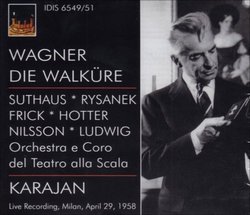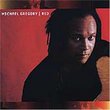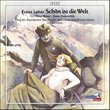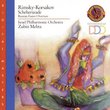| All Artists: Richard Wagner, Herbert von Karajan, La Scala Theater Orchestra, Birgit Nilsson, Ludwig Suthaus, Gottlob Frick, Hans Hotter, Hilde Rossel-Majdan, Jean Madeira, Judith Hellwig Title: Die Walküre Members Wishing: 0 Total Copies: 0 Label: IDIS Original Release Date: 1/1/2008 Re-Release Date: 7/29/2008 Album Type: Import Genre: Classical Styles: Opera & Classical Vocal, Historical Periods, Modern, 20th, & 21st Century Number of Discs: 3 SwapaCD Credits: 3 UPCs: 675754009441, 8021945001862 |
Search - Richard Wagner, Herbert von Karajan, La Scala Theater Orchestra :: Die Walküre
 | Richard Wagner, Herbert von Karajan, La Scala Theater Orchestra Die Walküre Genre: Classical
|
Larger Image |
CD DetailsSimilar CDs
|
CD ReviewsRough around the edges but...... Wagnerfan | Louisville, KY | 10/05/2008 (3 out of 5 stars) "In the beginning, I really wasn't expecting too much from this release, even with such an outstanding cast and conductor. But 'live' Karajan and La Scala? Plus Wagner!Very tempting indeed. But La Scala has always been a difficult opera house for recording, even the commercial projects. Fortunately, this is one of the better products from La Scala to reach the market. Obviously, it is an in-house tape. I've certainly heard worse from EMI mono studio tapes from that era. Yes, the blasting, the fluttering and drop outs are all there as well as some very unusual cuts that jar the senses to those who know this score by heart. The most surprising one during the infamous ride at the beginning of Act Three. You get a few seconds of the intro and then POW! the voices enter without warning. The splice(?) is done so well it sounds as though Karajan had snipped a few bars, but I doubt Karajan would even scissor a second from this famous piece. The singers, especially Nilsson and Hotter, are heard to good advantage, but Suthaus and Karajan seem to be playing tag through much of the proceedings.I barely recognized Ludwig in the 'Ride' (no, she is not Fricka...she is Waltraute.) Why is there always a catch in these 'live' recordings? Suthaus does a Melchior during Act One and attempts to out run the conductor and, yes, the famous Rysanek scream is there when Siegmund pulls the sword from the tree. Sounds alittle like a two-story fall. Hotter can not be heard at all when he lets Hunding 'have it'. I even put my ear to the speaker to see if i could heard him faintly in the background. No. Hum, wonder if he missed his cue? By the way, this is the 'fast' Karajan...nothing like his studio recording of this opera. The orchestra is excellent and they play their hearts out. All-in-all, if you must have every Walkure on the market, this will be another good one for your collection. The sound is bearable except for a long stetch in Act Two before Siegmund and Sieglinde enter.A few drop-outs in the First Act Prelude and the audience is very well behaved except for applause at the beginning and end of the acts. The sound is clearer than the commercial Legge recording of Act Three from '51 Bayreuth except some flutter and blasting from the voices and orchestra during the dramatic passages. An interesting recording, and maybe even a historical document, but not a must have. If you are a Karajan fanatic, a Nilsson/Hotter fan or just a Walkure collector, go for it. If not, forget it." Fascinating but flawed Ralph Moore | Bishop's Stortford, UK | 07/30/2009 (3 out of 5 stars) "This live radio recording, thought lost but happily re-discovered amongst the collection of a Milanese enthusiast, has been hyped as possibly "the best live performance on disc". Well, maybe - there are some promising indications, not least the presence of a young (-ish, at fifty) Herbert von Karajan in the pit and two Wagnerian giants on stage in Birgit Nilsson and Hans Hotter. This was in fact Nilsson's début as Brünnhilde at La Scala, in the same year that she had made her first appearance at that opera house as Turandot. She deservedly scored a total triumph in both roles; the demanding La Scala audience were astonished by her poise and power and you can hear her here in freshest voice, not just touching but punching out those gleaming top B's and C's in "Ho-jo-to-ho!" and showing enormous vocal stamina. Likewise, Karajan seems inspired; the orchestra responds to his every demand and he encapsulates the huge emotional range of this, the greatest (I believe) of the Ring "music dramas". (OK; co-ordination between the singers and orchestra goes to pot in the "Ride", but this happens in live performance and generally the musical standards are high.) So far so good; so why am I not able to be quite as excited about this issue as its promoters would like? There are a number of reasons: the principal problem is the inadequate Siegmund of Ludwig Suthaus. This estimable artist will be known to most collectors as the Tristan in Fürtwängler's famous 1952 studio recording with Flagstad or indeed as Siegmund in the 1954 studio recording with the same conductor shortly before his death. While it might be heresy to some for me to whisper it, I do not share the widespread adulation for that account of "Tristan und Isolde", but I do enjoy Suthaus's part in both sets and hear a marked decline in Suthaus's voice between those recordings and this stage performance. Here in 1958 he sounds badly worn, his voice a mere shadow of its former, thrilling self. He was only 51 but sounds older; in every note which is mezzo-forte and above the vibrato degenerates into a pronounced wobble. He frequently seems to be compensating for his inability to sustain pitch and vocal tension by shouting for emphasis at climactic moments. Key words are punched out unmusically and the line is broken. He is least effective when it most counts, for example in his cries of "Wälse". His voice was always attractively baritonal, a feature shared by the greatest Wagnerian tenor of his day, Ramon Vinay, but by this stage it has lost all beauty of tone and Siegmund's narratives fall ungratefully on the ear. I made a point of careful comparison between the 1954 studio performance and this - and as for comparison, there is none; the voice is barely recognisable as the one we hear in the Fürtwängler set. I note that rather disingenuously - or perhaps wisely - none of the promotional blurbs for this recording mentions Suthaus's performance. Now we know why: this is "Hamlet" without the Prince. This is all the more regrettable when set against singing of the standard provided by Nilsson and her co-performers. Jean Madeira as Fricka provides sturdy, refulgent tone with ringing top notes; she is I wonderfully impassioned in her vocal acting, and presents a force for Wotan to reckon with. It is interesting, too, to note the presence of rising star Christa Ludwig among the Valkyries as Waltraute. Of the other principal roles, I have always had something of an aversion to Hotter's Wotan but accept that in his 1953 Ring cycle with Clemens Krauss he is in magisterial voice, at the very peak of his prowess. Here, however, he seems to be having a bad night, perhaps the result of the allergies which blighted his career, or perhaps the decline in his voice, which became apparent by the time he was recording the "Ring" for Solti, is beginning. He sounds tired during the closing stages; we hear the blare, rockiness, and characteristic "woofiness" which gradually impaired Hotter's sonorous bass-baritone manifesting themselves. This is still a massively authoritative impersonation of Wotan - but not a patch on that of George London three years later for Leinsdorf. Hunding is sung, according to IDIS, by Otto (sic) Frick. It makes me wonder just how much attention is being paid by those who control the production quality of these records. Surely someone might have noticed that they had called the foremost German bass of that day by the wrong name, on the back cover? (It's right in the cast list in the liner notes.) Anyway, Gottlob Frick is in typically trenchant, saturnine voice, making Hunding a truly menacing character. The final star singer in a major role is Leonie Rysanek. Her major vitues as a singer are much in evidence - refulgent top notes, amplitude of tone, depth of feeling - and some of her (admittedly negligible) faults, too, such as a certain clumsiness in the middle of the voice. I prefer a more vulnerable, silvery vocal personality for Sieglinde such as provided by Gre Brouwenstjin or Gundula Janowitz, but Rysanek presents a fully realised, wholly credible and magnificently vocalised account. With so much fine singing to reward the listener, surely the relative weakness of Suthaus's contribution can be tolerated, especially when the conducting and orchestral playing is so fine? You will note that I have not yet mentioned the quality of sound, a crucial factor given the strength of competition from live and studio recordings of the same era, many featuring the same artists. The sound is in fact pretty standard for a live recording of this time: sometimes a bit dim, and frequently scratchy and congested when the volume peaks or there is any ensemble. It's no aural treat but it's listenable with a little good will. However, there is one repeated flaw: sudden drop-outs into silence or lurches resulting in a lost bar or two of music. The most significant and damaging among these occur in the Prelude, the "Ride of the Valkyries", Wotan's "Leb wohl" (which should be so moving but is here disrupted) and just before "Loge, hör!" in the finale. Documentation is minimal - a cast list, the cues and three photos - but given that one of the few pieces of information vouchsafed to us is the announcement proudly encircled by laurel leaves that the recording has been "Digitally remastered by Danilo Profumo at Philip & Cyril Studio Vignate (Milan) April 2008", it would have been courteous and honest to alert the listener or prospective buyer to these deficiencies in the master tape. In the 100th anniversary of Karajan's birth, this so-called "World Premiere Recording" on CD - although Myto has also produced its own, considerably cheaper issue - is obviously of historical importance. Karajan and Nilsson completists will want it, despite its sonic and vocal limitations, for the conductor's mastery and the great soprano's bravura; she sings as if she hasn't a nerve in her body despite the avowed apprehension she confesses in her autobiography on this, one of the biggest moments in her career. There are, however, compelling alternatives: if you want better all-round sound and singing of a similar stature but with a more satisfying Siegfried, I would recommend either Suthaus's younger, superior self in the Fürtwängler recording, Leinsdorf's electrifying version with Nilsson, Vickers and London or, if you want Karajan conducting in his later, more controversial, "chamber-style" Wagner, try his 1966 studio recording. " Wretched sound...good performance Sergio Da Silva | Florida, USA | 08/05/2009 (3 out of 5 stars) "While the cast in this set is wonderful, the sound is terrible, every climax is full of distortion and there is a couple of bars of music missing in each Act. I can't fault the engineers since this is a historical document but be warned. There is a booklet with the tracks and pictures but nothing about the performance which is disappointing.
Karajan's conducting and the orchestra are variable, I thought Act 1 lacking coordination, the orchestra improves as things go on and both the conductor and the orchestra deliver a heartfelt Wotan's Farewell and Magic Fire Music (in spite of a tape problem at the very end when the tape speed seems to waver). Karajan makes two absurd cuts in Act II, one during the duet between Wotan and Brunhilde and another during the Todesverkündigung (Annunciation of Death), both unforgiveable (specially the latter). I enjoyed the whole cast; Ludwig Suthaus is a true heldentenor Siegmund, a really dark voice, he has a few problems here and there but overall he enunciates the text and delivers the music very well. Leonie Rysanek is somewhat variable, with a cloudy middle, great high notes, she is as always well into character. Gottlob Frick is superb as a really dark menacing Hunding. Jean Madeira (not mentioned in the box cover, they mention Christa Ludwig who plays only one of the Valkyrie) is a very good Fricka with some very strong low chest notes and great attention to the text. Pride of place must go to the father and daughter, Hans Hotter and Birgit Nilsson. Hotter is, as always, a superb Wotan, the text delivered with Lieder-like attention and the voice really dark and expressive, he is also much more secure vocally than latter for Solti's studio recording. Nilsson is amazing, she sings Act 3 with such ease, where most sopranos are gasping for breath, her voice is intact (just listen to Brunhilde's desperate plea to Wotan at the end of Act 3 where she hits a tremendous high note, her voice must have cut La Scala in half!). This is recommended for Wagner and Ring fans alone (mostly due to the sound) but well worth a hearing for Nilsson and Hotter." |

 Track Listings (14) - Disc #1
Track Listings (14) - Disc #1



